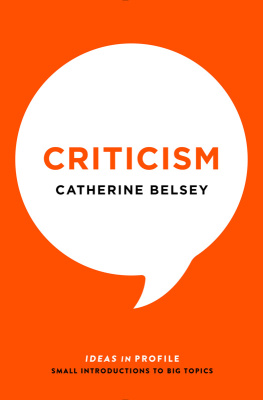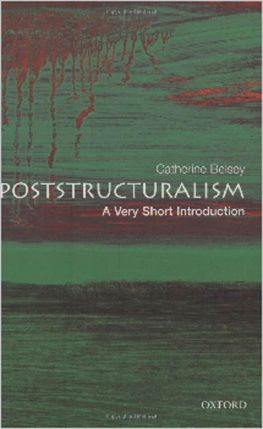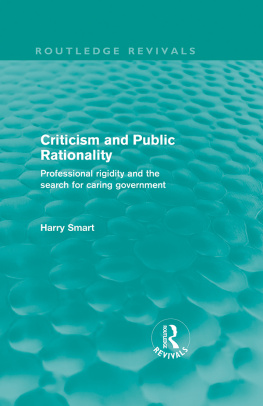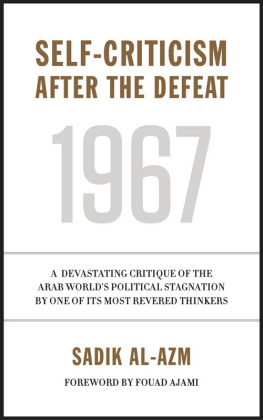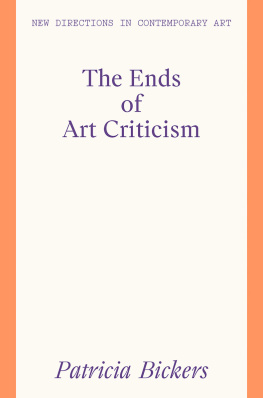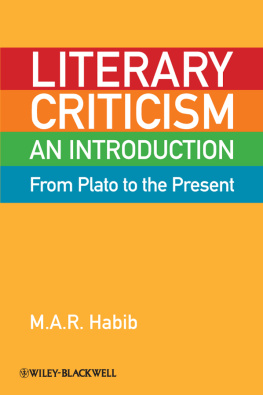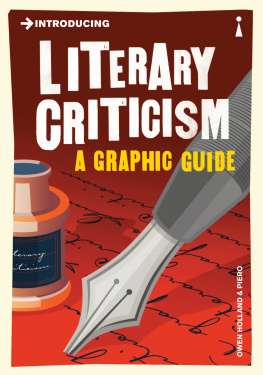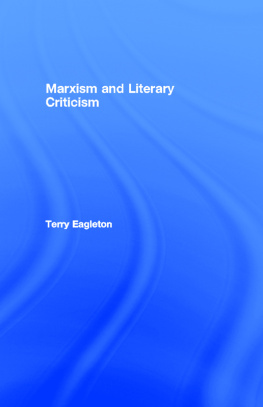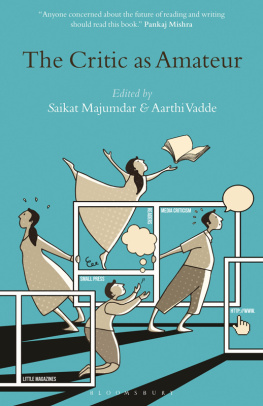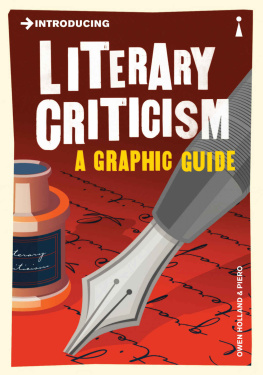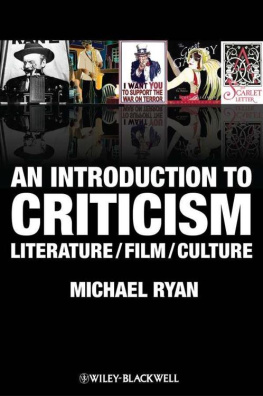CRITICISM
CATHERINE BELSEY chaired the Centre for Critical and Cultural Theory at Cardiff University before moving to Swansea as Research Professor in English. Much of her work is on Shakespeare and cultural criticism. Her books include Critical Practice (1980, second edition 2002), Poststructuralism: A Very Short Introduction (2002) and A Future for Criticism (2011).

ALSO BY CATHERINE BELSEY
Critical Practice
The Subject of Tragedy
John Milton: Language, Gender, Power
Desire: Love Stories in Western Culture
Shakespeare and the Loss of Eden
Poststructuralism: A Very Short Introduction
Culture and the Real
Why Shakespeare?
Shakespeare in Theory and Practice
A Future for Criticism
Romeo and Juliet: Language and Writing
CRITICISM
CATHERINE BELSEY

First published in Great Britain in 2016 by
PROFILE BOOKS LTD
3 Holford Yard
Bevin Way
London WC1X 9HD
www.profilebooks.com
Copyright Catherine Belsey 2016
The moral right of the author has been asserted.
All rights reserved. Without limiting the rights under copyright reserved above, no part of this publication may be reproduced, stored or introduced into a retrieval system, or transmitted, in any form or by any means (electronic, mechanical, photocopying, recording or otherwise), without the prior written permission of both the copyright holder and the publisher of this book.
All reasonable efforts have been made to obtain copyright permissions where required. Any omissions and errors of attribution are unintentional and will, if notified in writing to the publisher, be corrected in future printings.
A CIP catalogue record for this book is available from the British Library.
eISBN 978 1 78283 157 0
This book is dedicated with grateful thanks to the students of English at the University of Derby.
THE PRACTICE OF CRITICISM
OPTIONS
What do you think of it?
Anyone who asks you this question is addressing you as a critic. Most of us practise criticism from time to time, if only at the level of choosing to see this movie, read that book or watch the other programme. The Sunday papers offer detailed critical coverage of current novels, plays, films and exhibitions. Reading groups and book clubs debate distinct critical reactions to the same work; literary festivals more and more of them thrive on critical discussions of new writing. Meanwhile, reading and talking about reading form part of the school curriculum from our earliest years. In consequence, critical habits are inculcated in childhood to the point where they come to seem natural or inevitable for better or worse.
Its always possible to stop at I liked it (or not) but the conversation stands a chance of advancing in interesting ways when were more specific. This book is not a history of criticism, an encyclopaedia of famous critics or a dictionary of critical terms, but a reflection on criticism itself, the possibilities and options that confront casual readers, as well as reviewers, members of reading groups, students of English and teachers of a discipline. How far do we make conscious choices about how and what we read (or view)? What do we conventionally look for in fiction? What might we look for?
Consideration of those issues will include some history, discussion of some famous critics and, indeed, some comments on critical terms. Over time, criticism has developed a vocabulary that singles out particular approaches to poetry and storytelling. The prevailing terminology is certainly worth our close attention but it might not be beyond improvement. Perhaps we could usefully expand the vocabulary we take for granted when we talk about reading (and viewing). There might be alternative questions that new terms would enable us to raise about reading in general or an individual work in particular.
Criticism does not confine itself to the analysis of plays, films, novels and poetry. All made objects are entitled to their own critics. Quite apart from the long and distinguished history of art criticism, there are music experts, not to mention restaurant reviewers and wine critics. Some of what I have to say applies to varying degrees in these fields too. But, while it includes marginally more about the visual field than, for example, viniculture, this book will focus primarily on fiction, and written fiction at that.
Why not come clean, then, and call it literary criticism? Because there is room for unease about the way literary divides the field in advance. Deliberately or not, the term implies a prior value judgement: literature is the good stuff, worth a particular kind of attention, and the rest is thought of at best as popular culture, at worst as pulp fiction or trash. One problem with this distinction is that the judgement has usually been established in advance, in practice by the previous generation. Lets begin by taking nothing on trust.
The word fiction has its difficulties too, since it seems to stand as the opposite of fact. But poems, essays or memoirs may well lay claim to truth, while at the same time differentiating themselves from the particular kind of allegiance to fact asserted by history, science and social science. We have no comprehensive term for writing not primarily committed to relaying the facts. And fiction has the advantage of including cinema, opera and some kinds of painting.
The criticism of fiction has been practised in the West since ancient times and debated for just as long. Aristotle, for example, took issue with Plato, who excluded fiction from his ideal republic. Aristotle wrote about tragedy in ways that still carry authority, but his views in turn have been contested: successive epochs have come back to the puzzling question he prompted of why tragedy gives pleasure. While subsequent criticism has embraced a range of activities, centring variously on themes or genres, on the formal construction of an individual work, or its place in history and in the specific history of fiction, all these approaches have given rise to debate.
But if nothing is finally settled, three main issues have preoccupied traditional criticism: judgement, morality and intention. Much effort has gone into constructing hierarchies of value: where, people have asked, does this individual work stand in the league table? Judgement often goes hand in hand with an insistence on the ethical value of the work. Is the pleasure we find in fiction best seen as sugar on a moral pill? Even pleasure itself has been thought suspect, a distraction from the serious task in hand. Meanwhile, can we make sense of the work without knowing who wrote it or what the author had in mind?
The attention paid to each of these critical priorities has varied in the course of time. Might the emphasis usefully change again in the future? Where has criticism come from and where might it go? Most important of all, how can we best go about reflecting on these issues?
AN EXAMPLE
Criticism proceeds by putting forward answers to questions, and specific questions focus attention differently. They dont necessarily determine what we find. Instead, the work has an independent existence and may well surprise us. But looking for the moral truth of the work, say, is distinguishable from locating it in history, at least in the sense that its possible to do one without the other; formal analysis is not the same as identifying the sources. Criticism includes all these options.
Next page
